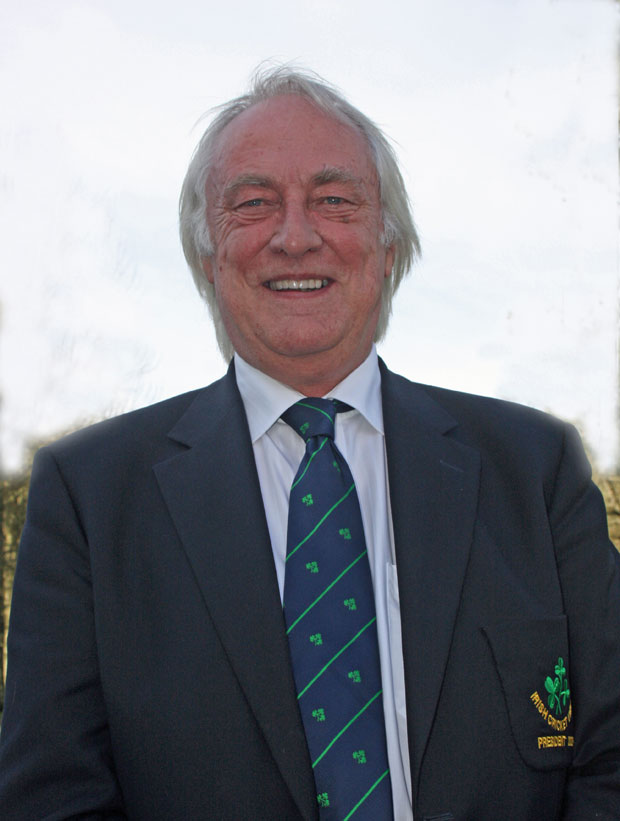John Caldwell knew it was going to be a hugely difficult meeting and he wasn't wrong. It was one of his first as chairman of the Irish Cricket Union and an emergency meeting at that. The year was 2001 and Ireland had just returned from Canada having once again failed to qualify for the World Cup finals.

John knew the head of the national coach Ken Rutherford would be top of the executive's agenda. But he nipped any acrimonious debate in the bud when he produced a rabbit from the hat: to be precise, a letter from his pocket. There would be no sacking: it was Rutherford's resignation.
It was then that the real problem arose: Rutherford's successor. Two of the most senior executive members began to argue against a full time professional replacement, rather the post should be filled part time and locally.
John played the trump card you can play but once. If the executive did not commit to a full time coach after a proper trawl of world cricket then the Union would be looking for a new chairman. Not long after, John chaired the board which appointed the man who was to transform Irish cricket on the world scene: South Africa's Adrian Birrell.
That stormy meeting in Dundalk summed up the attributes of a man whose legacy is still to be found in club, provincial and national cricket today.
He was methodical and meticulously prepared as you would expect from one whose career had been a university lecturer in town planning. He always saw the bigger picture, hence one of the key strategists in the history of the game here.
Few, if any, had a clearer vision of the future and it was about professional people doing a professional job backed up by voluntary shoulders to the wheel. It was why he was the strongest advocate of a business like chief executive to run Irish cricket.
Professionalism on and off the field: the building blocks were being laid for all that followed, culminating in Test status in 2017. Alas, one of its main architects was deprived of seeing the dream realised.
At provincial level the efficiency of the NCU governance can be traced back to John's insights. He was the author of many of the Union's strategic plans which saw an unwieldy executive of up to 30 members cut to manageable numbers. It was supported by a small number of directorates covering key disciplines, each with a director sitting on the newly constituted board.
And, of course, there was the club in his native Ballymena where his love of cricket and rugby combined to ensure he was a constant supporter and administrator every week of the year at his beloved Eaton Park.

He was to the fore in raising funds even to the extent of hiring the ground out to Duffy's Circus. Alas, an elephant's call of nature left his prized pitch as brown as the WACA of old. No more elephants.
The pavilion clock unveiled by his devoted widow Nan is a constant reminder of a lifetime of service as both player and official. But it was Irish cricket which was the main beneficiary of a serious mind and gentlemanly manner.
The former, more than most, lead to where we are today; the latter, particularly when president, ensured a welcomed sight at home and abroad.
I was fortunate to be in John's company to witness many of Ireland's exploits and not least during their first World Cup in the West Indies in 2007. He was there to witness Adrian Birrell's last games as coach, particularly the historic win over Pakistan which took Ireland to the Super 8 group. When his good friend and captain Trent Johnston hit the winning runs, I don't think I've ever seen a wider smile. Ireland had arrived.
